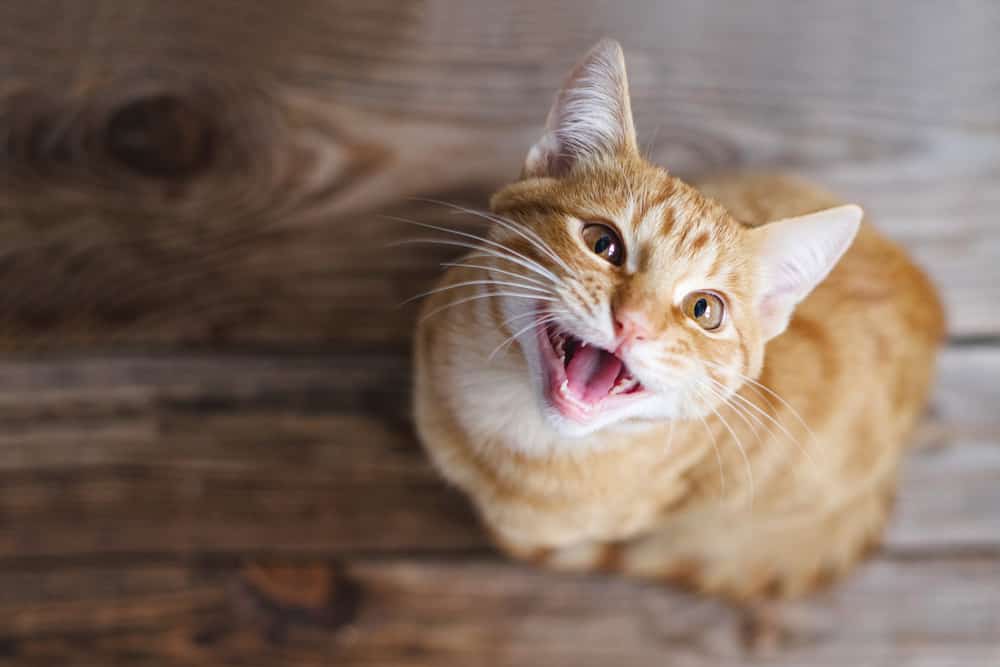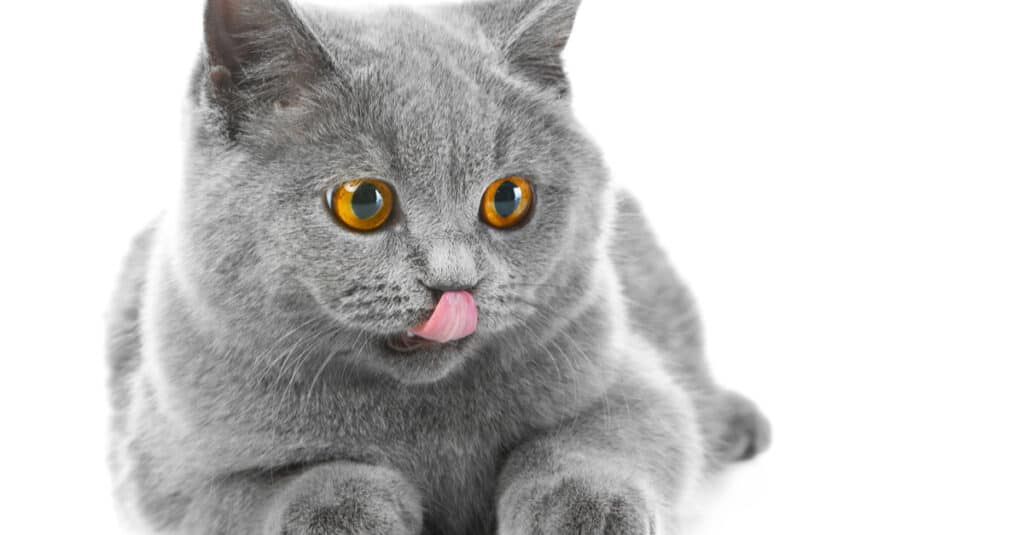Just because a cat can doesn’t mean a cat should. Cats sometimes get themselves into food (and non-food items) that they lap up, chew on, and sometimes happily swallow. You know which unique treats please your cat’s palate but what about cheese? Can cats eat cheese? Let’s find out!
Can Cats Eat Cheese?
If you’re a cheese lover, you know that it can be a delightful food. However, most cats are lactose intolerant. Now, that doesn’t mean they can’t eat cheese. Cats can eat cheese but only in small amounts. There is no indulgence allowed for cats when it comes to lactose products. You might wonder what types of cheese your cat can eat. Cheese sticks are okay because they’re usually made from mozzarella. A tiny bit makes for a nice treat but don’t give them the whole stick!
Feta cheese has a stronger flavor and compared to other types of cheese, it has less lactose. However, it’s high in sodium and should be avoided. Salt can be toxic to your cat and could cause digestive upset. What about American cheese? This type of cheese has the most synthetic components alongside chemicals so ideally, you don’t want to give this type of cheese to your cat.
Now, let’s consider blue cheese. Blue cheese is a hard no for your cat. This cheese is moldy and the mold, which is called penicillium, is highly toxic to cats. Not even a tiny bit is okay. Cheddar cheese is definitely okay but again — only in small quantities. Cottage cheese can be okay too but it’s likely to cause stomach upset because it has a higher lactose content than other types of cheeses.

“Can I have some?” Check your cheese before you offer it to your floof!
©savitskaya iryna/Shutterstock.com
What Happens If a Cat Eats Cheese?
Your cat is an obligate carnivore. That means that your floof gets everything they need from meat sources. Despite this, your cat can usually process different types of vegetables, but these aren’t a necessity for your cat’s survival. When your cat eats cheese, they probably enjoy the flavor. But later, you might notice that your cat displays some gastrointestinal upset.
There could be bloating, gas, vomiting, or diarrhea. Some cats can handle cheese better than others. If you notice that your cat gets sick after ingesting a small amount of cheese, it’s best to avoid giving them any. If your cat can handle a little bit of cheese, you can give it to them occasionally.
How Much Cheese is Safe for Cats?
Your cat shouldn’t indulge in cheese. When you think of a small amount of cheese, think of a small block just big enough to hide a pill. Cheese makes a wonderful pill pocket when you have to administer medicine that your cat wouldn’t otherwise ingest. That’s about the maximum amount of cheese your cat can have at any given time. It should not be a regular treat. Only an occasional yum your cat gets to enjoy without any uncomfortable consequences.
Health Benefits of Cheese for Cats
Cheese delivers protein and calcium to your pet’s diet but it’s not a necessary component to ensure your cat’s overall health. The greatest benefit of cheese for cats is that it’s so tasty, you can sneak their medicine in it. Ultimately, it helps them get the meds they need to heal from whatever medical issue they’re dealing with. You can let them enjoy a creamy, slightly salty, palatable flavor while they’re on the road to recovery.

Cats may savor cheese, but it doesn’t offer nutrients they don’t otherwise get from meat.
©Irina oxilixo Danilova/Shutterstock.com
Other People Foods Cats Might Try
Cats do best on low-carb, moderate-fat, and high-protein diets. However, you may notice that your cat is attracted to certain human foods that you may want to share with them. Maybe you peel a banana and immediately your cat is at your side sniffing and wanting a taste. Maybe every time you scramble your eggs in the morning, your cat is quick to head bump your ankles, letting you know that they’re there and ready to receive if you want to share. Or maybe your cat keeps getting into your dog food! Sometimes it’s chocolate; each cat is different. Explore the links below to determine if it’s safe for cats to eat the following foods:
How To Keep Your Cat From Eating Unsafe Foods
One of the best things you can do is schedule your cat’s mealtime with your mealtime. While they’re busy savoring their favorite kibbles, wet foods, and toppers, you can enjoy your own meal without worrying about your cat trying to get some of that stuff on your plate. Hide snacks, use puzzle feeders, and don’t give in to the temptation to give your cat a taste of the foods you eat. Like child-proofing your home, you can cat-proof your home to ensure your inquisitive feline friend steers clear of food (and other) items that may be unsafe.
The photo featured at the top of this post is © Rudinski Vyacheslav/Shutterstock.com
Thank you for reading! Have some feedback for us? Contact the AZ Animals editorial team.







